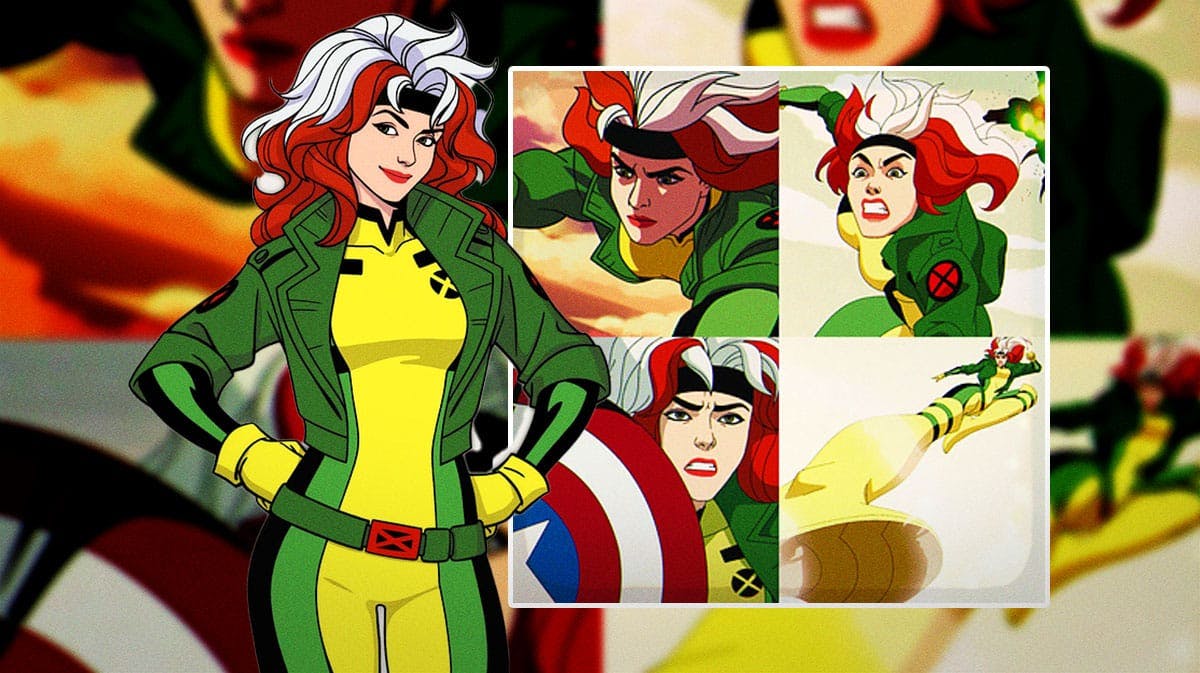Rogue, with her iconic white streak and compelling backstory, stands out as one of Marvel's most recognizable and beloved mutants. Her role in the early X-Men films cemented her status, captivating audiences with her complex powers and intricate personal dilemmas. Over the years, Rogue’s character has evolved significantly across various media, from comic books to animated series and live-action films. Each adaptation has explored different facets of her powers and relationships, making her an essential component of the X-franchise and a character who resonates deeply with fans. Rogue’s ability to absorb the powers of others makes her one of the most dynamic participants in any X-Men story, positioning her as a pivotal player in numerous narratives.
The latest episode of X-Men '97, “Bright Eyes,” showcases Rogue's impressive powers, reminding viewers just how formidable she truly is. At her core, Rogue possesses the power to absorb the life force, memories, and superpowers of others through physical contact. This ability, however, is a double-edged sword. While it grants her access to a vast array of powers and skills, it also curses her with the inability to touch anyone without potentially causing them harm. To mitigate this, Rogue often wears gloves, a necessary barrier that allows her to maintain some semblance of normal human interaction. In X-Men '97, Rogue's powers are not merely a plot device; they are integral to her character development and the narratives in which she's involved. Her absorption abilities are both a gift and a curse, a source of significant power and profound isolation.
Rogue's Unique Abilities
At her core, Rogue possesses the power to absorb the life force, memories, and superpowers of others through physical contact. This ability, however, is a double-edged sword. While it grants her access to a vast array of powers and skills, it also curses her with the inability to touch anyone without potentially causing them harm. To mitigate this, Rogue often wears gloves, a necessary barrier that allows her to maintain some semblance of normal human interaction.
In X-Men '97, Rogue's powers are not merely a plot device; they are integral to her character development and the narratives in which she's involved. Her absorption abilities are both a gift and a curse, a source of significant power and profound isolation.
Rogue's Strength and Combat Skills
Despite the limitations brought by her primary ability, Rogue's powers extend into remarkable physical prowess. Originally introduced as an antagonist and the surrogate daughter of Mystique, Rogue permanently absorbed the powers of Carol Danvers, also known as Ms. Marvel. This event dramatically altered her capabilities and her storyline, endowing her with superstrength, speed, agility, and the ability to fly.
These additional abilities have made Rogue a powerhouse in combat situations. Whether it's handling tanks with ease or breaking through facilities designed to contain the likes of the Hulk, Rogue's strength is on full display in X-Men '97. In the episode “Bright Eyes,” she effortlessly navigates an army facility, showcasing not just her power but her strategic combat skills.
Rogue's Evolution and Portrayal Across Media
The portrayal of Rogue has varied significantly across different media. In Fox's X-Men films, Rogue, played by Anna Paquin, was often depicted more as a victim of her powers rather than a master of them. This portrayal focused heavily on the dangers and limitations of her abilities, an angle that resonated with audiences but also limited her character's development.
Contrastingly, X-Men '97 embraces the full spectrum of Rogue's capabilities. The animated series allows her to showcase the kind of strength and control over her powers that the live-action films shied away from. This difference highlights an essential aspect of her character: Rogue is not just a mutant to be pitied; she is a formidable fighter whose powers are integral to the X-Men's success.
The Importance of Rogue in X-Men and the MCU
As the MCU prepares to integrate the X-Men into its universe, Rogue presents an exciting opportunity. Her complex powers, combined with her rich character history, provide fertile ground for exploration. The MCU has a chance to portray Rogue not just as a mutant struggling with her abilities but as a resilient and powerful member of the X-Men.
Rogue's story is one of struggle and acceptance, of learning to see her powers as a gift rather than a curse. Her journey from villain to hero, from isolation to being a central member of the X-Men, offers a compelling narrative arc that resonates with themes of identity and acceptance prevalent in superhero stories.
Conclusion: Rogue's Power and Potential
Rogue's abilities make her one of the most dynamic and powerful characters in the X-Men universe. X-Men '97 has done an excellent job of showcasing her strengths, setting a precedent that future adaptations would do well to follow. As Rogue continues to evolve both in animation and hopefully soon in the MCU, her character remains a testament to the complex interplay between power and humanity that lies at the heart of the X-Men saga. Rogue is more than her powers; she is a symbol of the struggle for control and the quest for identity, themes that are universally resonant and endlessly compelling.
